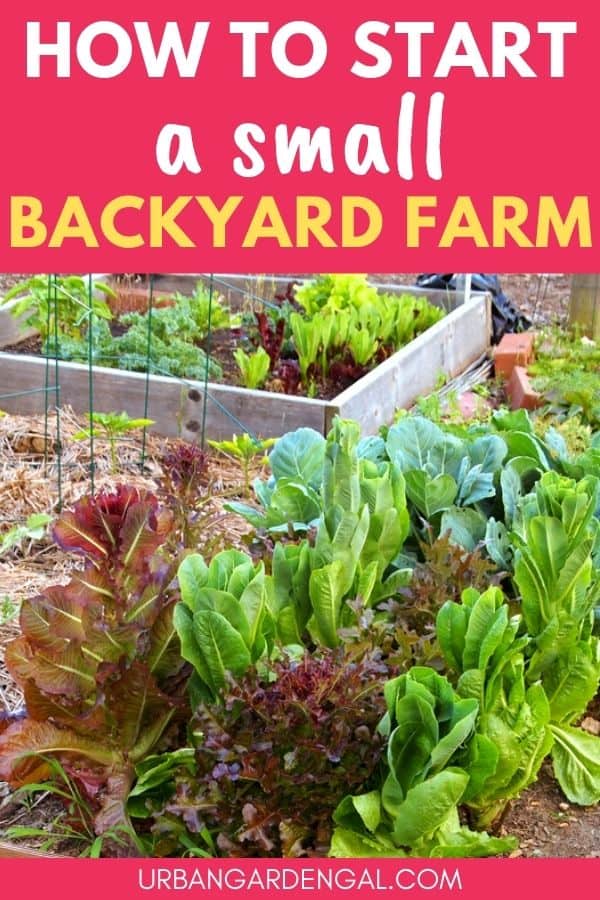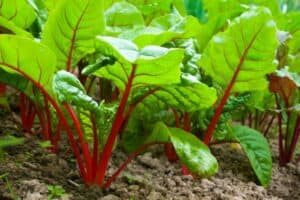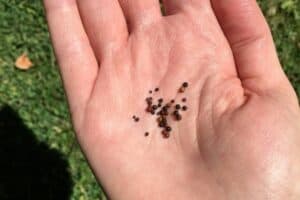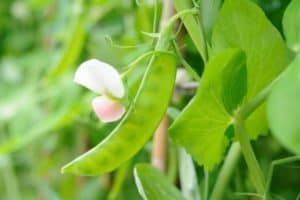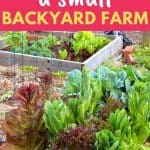Small backyard farms can be highly productive and you don’t need a huge backyard to get started.
In this article I’ll show you how to turn your backyard into a thriving edible farm and give you the tips to become a successful urban farmer.
This post contains affiliate links. Please read the disclosure for more info.
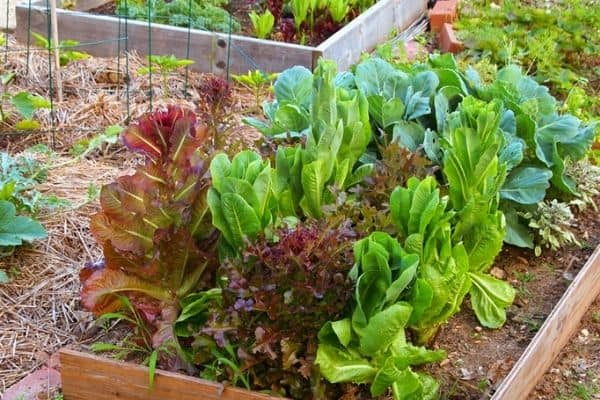
Backyard farming or micro farming is simply small scale but high yield farming in an urban or suburban environment.
Growing your own organic vegetables, fruits and herbs has many benefits including increased nutrition and it’s better for the environment because the produce doesn’t have to travel on trucks from the other side of the country.
I love watching my backyard crops grow and it’s great to be able to pick my own home grown fruits, vegetables and herbs straight from the garden.
Starting a backyard farm
Planning your garden before you start digging will ensure that you make the most of your garden space.
As well as the backyard, think about what you can plant in the front yard and at the sides of your house.
Don’t forget about the vertical space in your yard. Fences, pergolas, arbors and trellises can help you to maximize your growing space.
Sketch out a rough design of your plan on a piece of paper. You can always make changes as your garden develops.
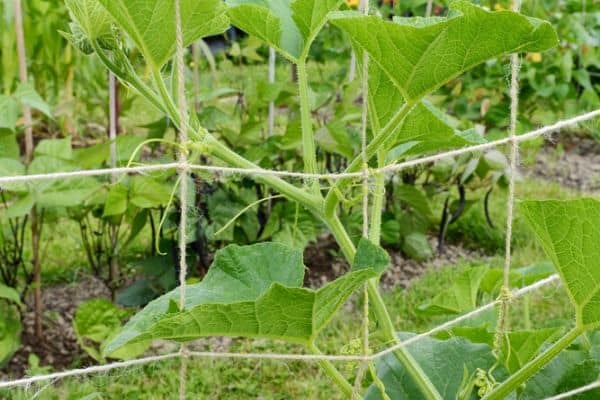
Choosing crops for your backyard farm
Would you like to grow just a few different crops and sell the produce or give it away to friends and family or would you prefer to plant lots of different types of plants so you can enjoy a wide variety of fruits and vegetables from your garden?
If you’re just getting started with gardening I’d recommend tomatoes, cucumbers and a few different salad greens.
Staggering your planting will ensure that you don’t have too many of the one type of vegetable ready for harvest at the one time.
Try planting a row of seeds every couple of weeks for a sustained harvest.
It’s a good idea to combine fast growing vegetables with slower growing varieties to make the most of your garden space.
For example, radishes are ready to harvest in about four weeks so they can be planted in between lettuces or spinach, which take longer to mature.
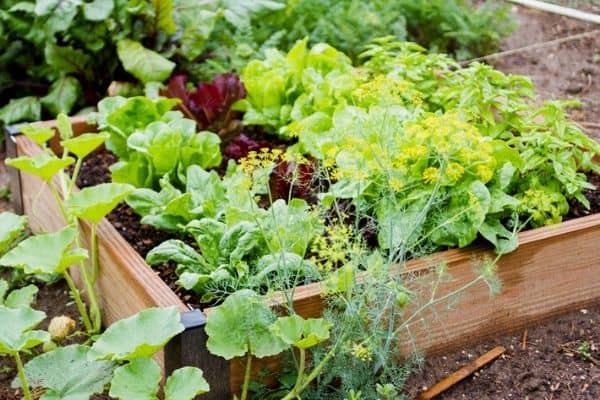
Turning lawn into garden space
Converting your lawn into a vegetable garden will give you lots more growing space, plus you won’t have the chore of mowing the lawn each week.
The easiest way I’ve found to get rid of lawn without using chemical sprays is covering it with black plastic until it turns yellow and withers away.
Then it’s much easier to dig up the lawn and get your garden started.
Vertical gardens
There are many climbing fruit and vegetable vines that are ideal for vertical gardens.
Popular climbing fruit vines including grapes, passionfruit and kiwi fruit can be grown on an arbor or pergola and they look great with the fruit hanging down.
Climbing vegetable plants like cucumbers, squash and even small pumpkins can be grown on trellises or wire fences.
RELATED: 12 Edible Vines For Small Gardens
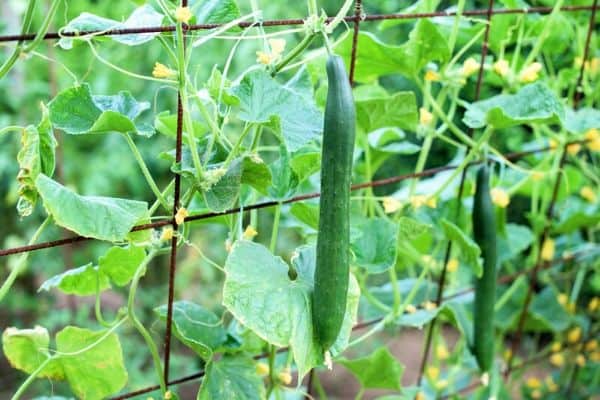
Edible plants and flowers
Many plants are beautiful to look at, with gorgeous flowers or colorful foliage while also being edible.
Edible flowers like viola, nasturtiums and chamomile not only look great in the garden, they can also beautify your salads and other meals.
Vegetables with colorful foliage like kale, lettuce and rainbow chard also look beautiful and can be planted in your garden beds in amongst the flowers or on their own.
RELATED: 12 Ornamental Vegetable Plants
Fruit trees like cherries, peaches and pears produce beautiful spring flowers followed by delicious fruit in the summer months so they’re ideal for a small backyard farm.
Year round crops
Planning your urban farm means that you can enjoy fresh produce almost year round depending on your climate.
- Summer crops – tomatoes, cucumbers, peppers, leafy greens
- Fall crops – kale, cabbage, beets, garlic
- Winter crops – brussels sprouts, kale, cabbage, carrots
- Spring crops – beans, potatoes, pumpkin, eggplant

Urban beekeeping
Backyard beekeeping is becoming a popular hobby for many people that live in the city.
Bees help to pollinate your crops and produce beautiful rich, raw honey that is high in antioxidants.
To create a successful beehive you’ll need a beehive kit as well as a protective suit
and smoker
.
Backyard chickens
If you have the space, a backyard chicken coop makes an excellent addition to a small urban farm.
Chickens not only produce beautiful fresh eggs, they also produce rich manure that you can compost and use to enrich your garden soil.
Chickens will also eat some of your garden waste including lettuce leaves, carrot tops and overripe fruits and vegetables.
Composting
A small backyard farm wouldn’t be complete without a compost bin for weeds and other garden waste.
Homemade compost helps to enrich the soil and it’s great for improving sandy or clay soil.
There are many different compost bins that are ideal for small gardens including tumbling compost bins that won’t take up too much space.
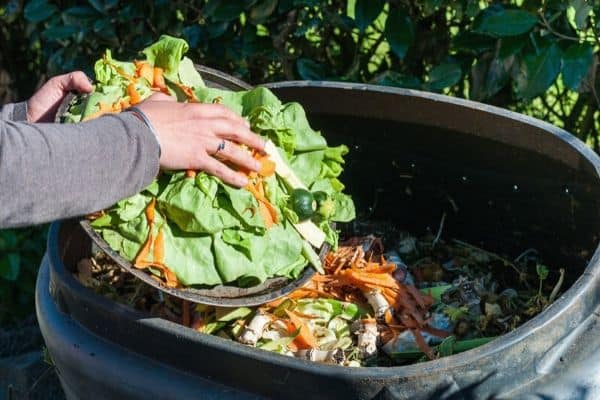
Preserving your produce
There are many ways to preserve your food before it spoils.
Dehydrating, canning, freezing, drying or pickling your produce will ensure that you can enjoy your home grown fruits and vegetables for many months after they’re harvested.
So there are my tips for creating a highly productive small backyard farm.
By making use of every inch of garden space you can feed your family with beautiful organic produce and maybe even create a side hustle selling your produce at markets.
RELATED ARTICLES
Have you tried to create an urban farm in your backyard? Which crops were the most successful for you? Let me know in the comments below.
Are you on Pinterest? I have boards dedicated to Vegetable Gardens and Urban Gardening that you may enjoy. You can also find me on Facebook.

